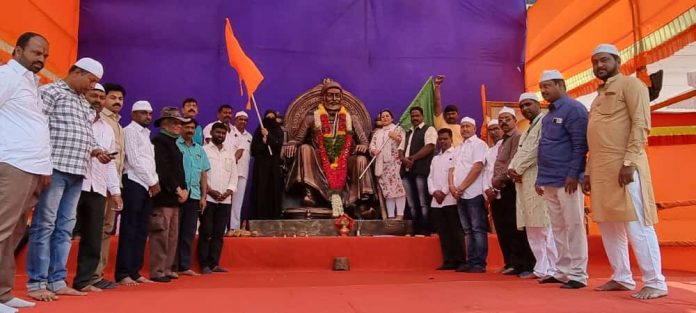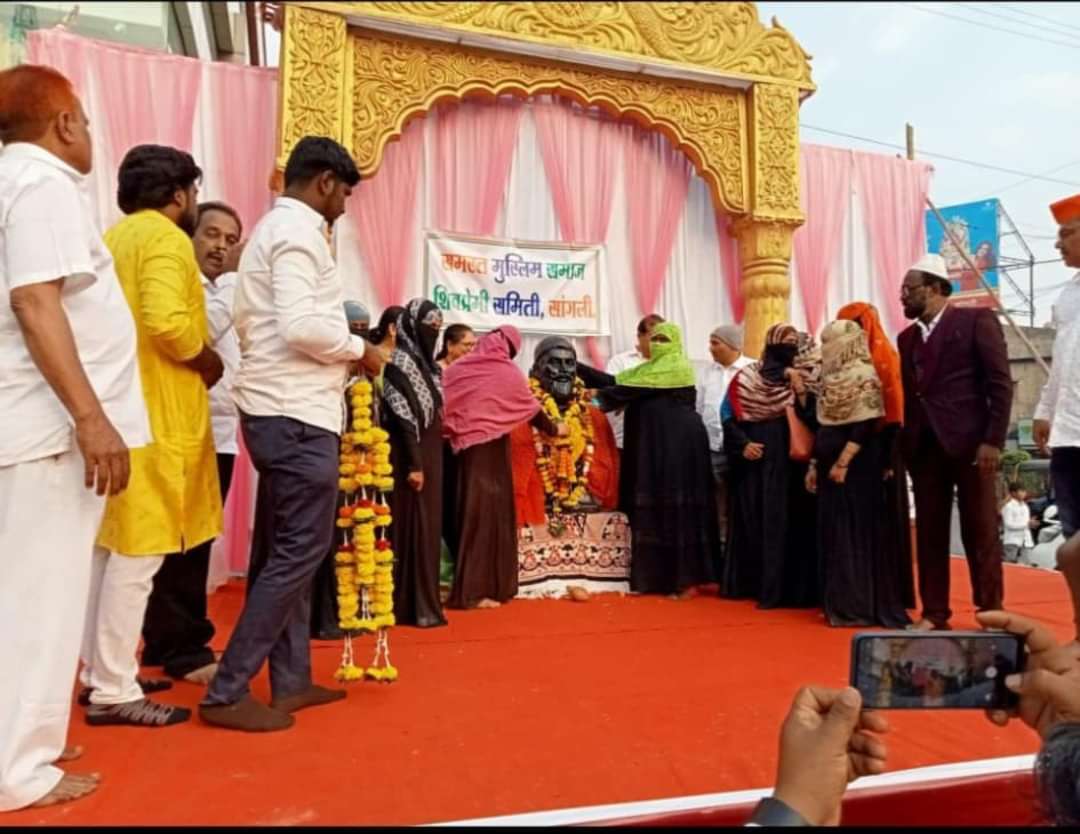
Chhatrapati Shivaji Muslim Brigade, an independent organisation, has been organising special events and activities on the occasion of Shiv Jayanti for the past six years in the state’s Solapur city.
Hasan Akram | TwoCircles.net
MAHARASHTRA — Chhatrapati Shivaji has purportedly become a unifying factor for Hindus and Muslims in Maharashtra. In the past few decades, the 17th century Maratha ruler has emerged as a secular figure and has become popular among Muslim as well, as opposed to what was being preached for centuries.
In recent years, Muslims in various cities and towns of the state have been observing Shiv Jayanti, the birth anniversary of Shivaji, on 19 February with great enthusiasm. The occasion is used to preach communal harmony and brotherhood by leaders and organisations of the Muslim community.
Chhatrapati Shivaji Muslim Brigade, an independent organisation, has been organising special events and activities on the occasion of Shiv Jayanti for the past six years in the state’s Solapur city.
This year, the organisation held a quiz competition on the life of Shivaji, in which over 200 students from Urdu-medium schools took part. The winners were provided trophy and cash prizes at an event held on the evening of 19 February, in which prominent members of the local Hindu community were also invited.
At the event, the organisation felicitated two authors viz Musa Khan and Wajahat Abdus Sattar, who have written books on Shivaji in Marathi and Urdu languages. Apart from this, the group was also involved in charity activities such as distributing special kits for newborns and distributing edibles among schoolchildren to mark the birth anniversary of Shivaji.
“We want to give the message that Maharaj [Shivaji] was not an enemy to Muslim but was a friend to them. People from every caste and religion were with him. We want to create an environment of humanity,” the aforementioned group’s regional president Matin Bagwan said in a telephonic conversation with TwoCircles.net.
Shyam Kadam, president of another Solapur-based organisation, Sambhaji Brigade, described these developments as a deterrent to riots. “Due to the same, riots have stopped taking place in Solapur. Otherwise, we used to witness riots every ten years.”
He further said that Shivaji’s anti-Muslim image, which was built up by “Manuwadis”, underwent a change.
In Maharashtra’s Sangli town, local Muslims distributed rations packs among 200 poor families and organised a rally on the occasion of Shiv Jayanti. The rally was also joined by prominent leaders of the Hindu community.
“Riots used to take place in Sangli. A lot of people here are Hindutvadis [Hindu nationalists]. So, we started such activities to counter them,” Suhel Rajuddin Sayyad, a Sangli resident, told TwoCircles.net.
In the past few decades, substantial literature has emerged in Urdu and Marathi on the role of Muslims in Shivaji’s reign. Books such as Shivaji Maharaj ke Muslim sipahsalar [Muslim soldiers of Shivaji Maharaj] by Wajahat Abdus Sattar, Shivaji and Musalman [Shivaji and Muslims] by Saeed Hamid and Urdu translation of Govind Pansare’s book titled Who was Shivaji have played a pivotal role in the elimination of the Maratha ruler’s anti-Muslim image.

All these books have come to the fore in the past decade, part of a movement of sorts to erase misconceptions about Shivaji and further communal harmony, said author Wajahat Abdus Sattar.
Speaking about the secular characteristics of Shivaji, he said that his military was headed by a Muslim named Noor Khan and his naval army was also supervised by Daulat Khan. Moreover, 17 out of his 22-23 bodyguards were Muslims.
“People have seen in the time of Indira Gandhi how crucial bodyguards are. If Shivaji was an enemy to Muslims then how could he give an important responsibility such as bodyguard to a Muslim?” Sattar said.
Islamic clerics in Maharashtra have also helped create such discourse about Shivaji. Sheikh Subhan Ali, an Islamic orator and state secretary of the Nationalist Congress Party, said that he invoked inclusive characteristics of Shivaji in his public speeches to promote unity among communities and create a “humanistic” society.
Hasan Akram is a Delhi-based journalist. He tweets at @hasanakram01

